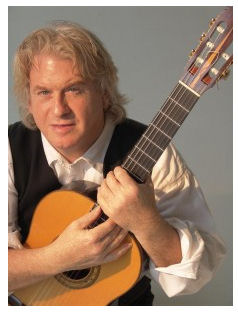One of the great benefits of being musicians is that our work is associated with trying to understand the music written by brilliant and creative souls like Johann Sebastian Bach.
 A few weeks ago as I started practicing Bach’s Allemande from the 1st Cello Suite, and even after playing this work, off and on, for over thirty years, I have asked myself “What new insight am I going to learn today?” Unlike the music of any other composer, the music of J.S. Bach can, with a simple inflection, transform and enlighten, much like the changing view in a kaleidoscope generated by a slight twist of the wrist. These new reflections give deeper meaning to the music and to the player’s own soul. When I’m playing my best ‘Bach,’ I become aware of what Bach is saying. This has little to do with my playing and more to do with Bach. I’m often reminded of a quote I heard by a fellow musician: “No matter how well you play Bach, the music is always better.”
A few weeks ago as I started practicing Bach’s Allemande from the 1st Cello Suite, and even after playing this work, off and on, for over thirty years, I have asked myself “What new insight am I going to learn today?” Unlike the music of any other composer, the music of J.S. Bach can, with a simple inflection, transform and enlighten, much like the changing view in a kaleidoscope generated by a slight twist of the wrist. These new reflections give deeper meaning to the music and to the player’s own soul. When I’m playing my best ‘Bach,’ I become aware of what Bach is saying. This has little to do with my playing and more to do with Bach. I’m often reminded of a quote I heard by a fellow musician: “No matter how well you play Bach, the music is always better.”
When pianist Glenn Gould recorded the Goldberg Variations not once but twice—first at the beginning of his career and then again at the end—many were puzzled. “Why make two recordings of the same work?”critics asked. But it made perfect sense to me. There is no better reflection of who you are, as a musician and a human being, than when you play the music of Bach. Somehow this composer’s music cleans out the soul, strips away the “isms,” and with the evolving understanding of the music, coincides with your own soul’s journey through life. The power of this music isn’t just in providing a reflection of who you are, but that it can change you for the better.
I don’t normally wax on this way, but after reading the review of Paul Elie’s book Reinventing Bach by Jeremy Denk in the New Republic, I thought it important to share, hopefully as an introduction to your journey with this great composer. So whether you play, listen to, or care to know more about the fascination around Bach, read the Jeremy Denk review called Bach’s Music – Back Then and Right Now. Let me know your thoughts!







you took the words right out of my heart…very good commentary!
Bravo!
I read Mr. Denk’s article. It was very interesting reading. As far as my personal opinion goes?…Bach left out may markings in his works for tempo and ornamentation. how these works are played or performed is sometimes a matter of feeling and interpretation. It seems Mr. Denk wants to be part of the past as he said. I am glad J.S. did not feel that way in his time with the advent of the new keyboard tuning of his time. Bach embraced this change and if not for that, what would have become of the Well Tempered Caviler?…
As far as his tale on Mr. Gould, I am very perplexed by this. He needs to break free from the “old testament” and be more forward thinking as Mr. Bach was. This music was written for all of us to enjoy. I do not feel the waters are poisoned just because Mr. Gould played a different interpretation. Truth be known Mr.Gould used Bach’s own composition techniques inverting tempos from themes on Bach’s other works. It was rather ingenious and well thought out. For all we know Mr. Gould could have suffered silently from a developmental disability we were unaware of. In other words I feel he needs to lighten up on Gould just a bit..The early Goldberg variations by Gould brought me closer to Bach as a young boy studying the Violin & Piano. Later in life on the Gould second recording I remembered why I loved Bach and took up the classical guitar. If not for that?..well, who knows.
I guess in the end I do respect Mr. Denks opinion. I understand how he feels. One thing is certain, all of this shall pass but Bach will live on in the hearts and minds of those who seek him for many generations to come.
Mike,
Thanks for your thoughtful comments. On tempi and ornamentation; ornamentations were mostly up to the player to decide. I don’t remember seeing tempo markings on any baroque scores. The lack of either isn’t so much a nod towards freedom in interpretation but a result of a certain universal knowledge.
That being said, I agree with you regarding Glenn Gould and the broader concept that Bach, played in just about any format, can be enlightening. Yes, the last 60 years has seen a lot of documentation on the interpretation of baroque music but Bach’s music seems to work with or without abiding by the ‘rules’.
In listening to Gould’s performance of the Well Tempered Clavier I was struck by what he hears and although perhaps not historically ‘accurate’ I’m not sure anyone understands Bach better.
Scott,
From the little I know and from my limited perspective, I say if you are a musician, you should always be working on a piece by Bach.
James “Shoes” Walker